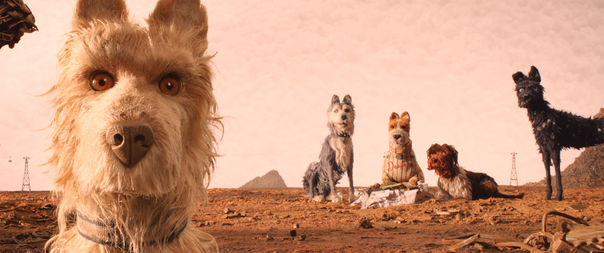The Unintentional Allegory of Our Times
By Kennith Rosario

© 2018 Twentieth Century Fox
Two years ago, when American filmmaker Wes Anderson started making ISLE OF DOGS (United Kingdon, Germany), he didn’t intend to make an allegorical film on the current times. “I simply wanted to tell a story about dogs on a trash island,” he says at the press conference for the 68th Berlin International Film Festival. From the onset, he wanted to set it in a dystopian future, so he started inventing the politics of an imaginary Japanese society. Set in a cat-dominated city, the mayor demands all dogs to be sent off to a trash island. He claims that all dogs are incurably infected by “snout fever” and must be quarantined. He uses military force to implement this radical decision, and the media to mislead citizens.
At a time when Europe faces a refugee crisis and the rise of right-wing xenophobia, and U.S. President Donald Trump is accused of discrediting and manipulating the media, ISLE OF DOGS is a rather appropriate opening film for this year’s Berlinale. In the time that it took to make the film, Anderson says, the world changed so much that he eventually sought inspiration from reality. “So we think this film is right for the moment,” he says.
Beyond the narrative, the visual details and variety of animation techniques in the film speaks volumes of its allegorical nature. From hand-drawn 2D animation for news footage to puppets and dolls for stop-motion, Anderson uses traditional animation techniques to draw the viewer back into the pre-digital era. No part of the film is purely computer-generated imagery, which lends it a sheen of authenticity (with all its rough edges). “With THE GRAND BUDAPEST HOTEL (2014), and before that with MOONRISE KINGDOM (2012), I realised I love models,” he says. “I liked it when models popped up in Alfred Hitchcock’s films.” ISLE OF DOGS is also Anderson’s way of paying homage to other filmmakers, like the classic animation of Hayao Miyazaki (SPIRITED AWAY, 2001) and samurai epics of Akira Kurosawa (RASHOMON 1950), making it part of a larger cinema heritage.

